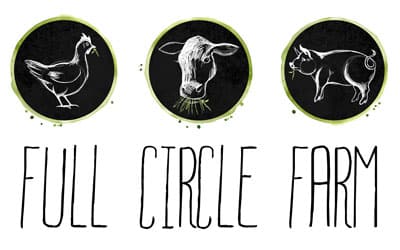FAQ
Why are you more expensive than supermarkets?
Industrial food has some walloping-big flaws. Cheapness is not one of them. It is quite astounding how cheap their food can be and you have to ask yourself; who is paying for that cheapness? The farmer? The animal? The land? Your health? Or all of the above?
The fact is farming the way we do in a regenerative manner is incredibly labour-intensive. Our animals move to fresh ground ALL THE TIME! There’s a lot of work in that. Conventional farmers are a little stumped when we tell them how all of our animals regularly move and how it’s like one big flowing choreography. It’s such a paradigm shift to what is possible in a paddock. We don’t mind the extra work. It means our animals live a damn-good life, it means the land is being healed and not wrecked, and that the food we are producing is nutrient-dense. This food is not for everyone but if any of those reasons mean something to you; it may be worth exploring supporting a regenerative farm.
Why are you out of some stock at times?
We are a small-scale regenerative farm. Sometimes we may not be fully stocked in a particular meat type due to a range of reasons. This could be because of abattoir booking issues, the animal not being quite ready or a weather-related delay or stress.
We are sometimes out of particular cuts usually due to the popularity of that particular cut. We are a nose-to-tail producer and encourage our customers to try different cuts and experiment if the popular cuts are sold out. If we’re out of rump steak, try oyster blade. No pork chops? Try pork shoulder steaks instead. Using the whole animal encourages a deep level of respect for the sacrifice.
Do your chickens and pigs get grain?
Chickens and pigs are omnivores and require protein to be healthy. Their body is not designed to live on grass alone. Their diet consists of their daily ration of grains, pasture, weeds, grubs, bugs, worms and whatever else they can find in the paddock. For more info; check out our heroes Polyface Farm’s discussion on this topic. Are Chickens Fed Grain?
Is your beef and lamb grass-fed and grass-finished?
Yes. We are quite passionate about this. Herbivores are designed to eat plants. They have a completely different stomach to omnivores and are designed to eat grass and lots of it.
Is your farm 'certified organic'?
Short answer is no. Long answer is that our practices are what you would consider ‘beyond organic’, or regenerative. As has happened so often, the industry develops a term or label to define a type of food, it then gets abused and stretched past the intention of why it was orginially developed, and continually the customer is left confused and cheated. We believe it is better to know your farmer personally and ask questions.
There are some great organic producers out there, but unfortnuatly there are many that cut corners when it comes to land health, animal ethics and general farming practices. Just because you have a fancy sticker on your food, doesn’t mean you aren’t eroding soil down the river and treating animals with disrespect by keeping them in stationary dark sheds.
Do your chickens and pigs get organic feed?
Unfortunately the only organic feed supplier on the eastern seaboard is in north Queensland, making transport and cost almost impossible. Instead we have chosen to feed them a natural grain diet that is not certified organic. We believe what is considerably more important is the environment the animal was raised in. Give me a choice between organic feed and disgusting sheds for our chickens and pigs, or natural grains and out on pasture; I know what I’d choose every time. One day we hope to be able to have our cake and eat it too, but until then we will continue to pasture-raise our chickens and pigs, diversifying their diet as much as possible.
Does all of the food come from your farm?
We produce the eggs, chicken, beef and pork. We also partner with other regenerative, beyond organic farms that we know and trust. We are serious about who we source other products from. We believe going forward, regenerative agriculture must uphold it’s integrity to not be watered down with other fad food terms. We therefore work closely with other farming families to ensure they farm with similar principles in mind.
Lamb- Horseshoe Valley Farm & Apiary
Veg Boxes- Little Feet Gourmet
Cheese- Little Creek Cheese
Honey- Horseshoe Valley Farm & Apiary
Other Veg- Food Integrity Group
What does 'pasture-raised' eggs mean?
We choose to call our eggs pasture-raised and not free-range. Unfortunately like most food terms, the word free-range has become watered down and doesn’t always mean what the consumer thinks it means. Free-range standards can have up to 10,000 birds per hectare (our birds are around 300 birds per hectare). The 10,000 birds in that hectare is not really the issue. Chickens are a flocking animal; they love to be together. Its HOW LONG those 10,000 birds stay in that one hectare that is the issue. Most commercial free-range operations are in stationary sheds with a door open to an outdoor area that resembles the surface of mars. Pasture-raised is different. All of our infrastructure for the chooks is mobile. We can therefore move our birds regulary onto fresh ground and rest the pasture they just came off. This is crucial for healthy birds, better eggs and a better ecology.
